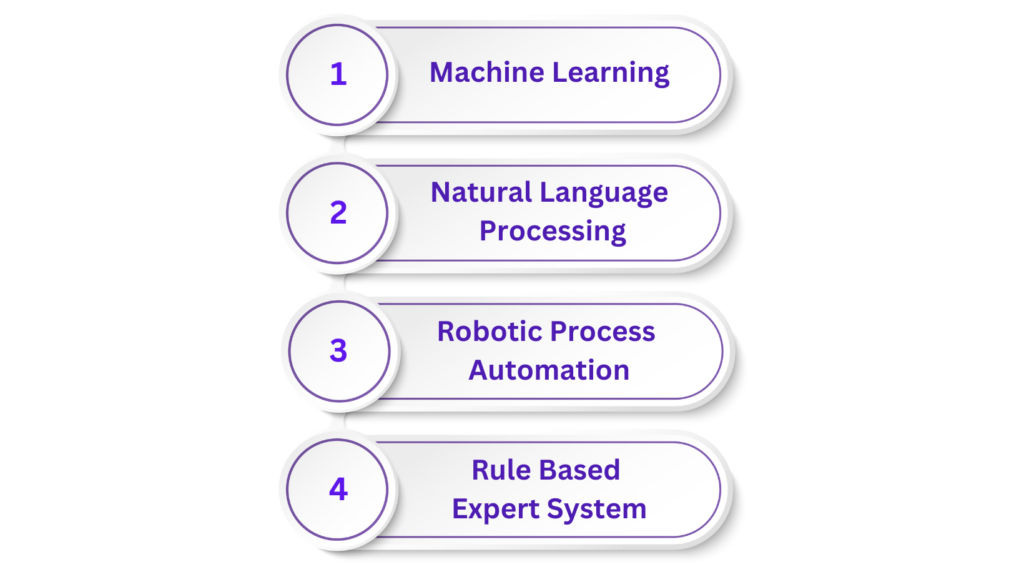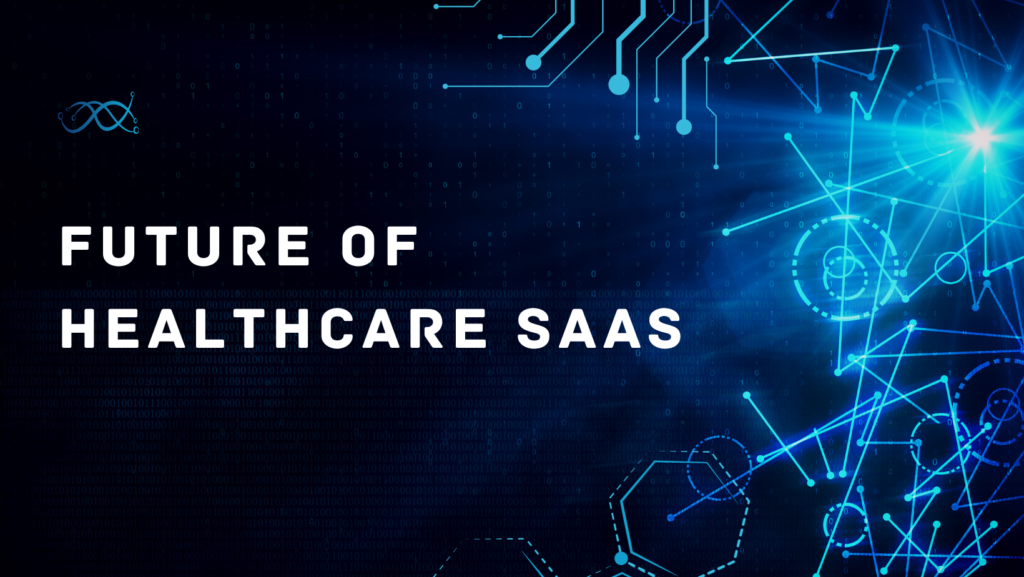Real World Examples and Use Cases of AI in Healthcare
AI applications significantly transform the healthcare industry, playing a pivotal role in tasks ranging from precise diagnostics to enhancing hospital efficiency. These advancements are propelling the AI is revolutionize the healthcare industry toward a digital transformation.
Offering Robot-Assisted Surgery
One of the prevalent applications of AI in healthcare involves the revolutionary impact on surgical procedures through the integration of AI and collaborative robots. This has diminished risks such as blood loss and pain while improving overall surgical outcomes. Additionally, AI enables surgeons to execute intricate procedures with heightened precision, contributing to accelerated and smoother post-surgery recovery for patients.
As an illustration, Maastricht University Medical Center has adopted AI-powered robots for suturing minute blood vessels, some as thin as 0.03 millimeters. The integration of AI in medicine and healthcare allows surgeons to access immediate, real-time information about a patient’s current health status. This AI-driven data empowers healthcare professionals to make timely and informed decisions throughout all stages of procedures, ensuring optimal outcomes.
Supporting Clinical Decisions
The utilization of AI and ML in healthcare is reshaping the decision-making process for clinical providers. AI provides essential data to support healthcare professionals in tasks such as diagnosis, treatment planning, and health management. The technology is particularly beneficial in data-intensive specialties like ophthalmology, radiology, and pathology.
There is also the potential for AI to autonomously handle specific tasks in the coming years. Moreover, through natural language processing, AI aids in translating clinical notes within Electronic Health Records (EHRs), streamlining data entry for clinicians by eliminating the need for redundant inputs.
Changing Online and In-Person Consultations
The Babylon App serves as a tangible illustration of how AI applications in healthcare can transform doctor consultations. This app delivers online medical consultations and healthcare services, offering optimal AI advice tailored to a patient’s medical history and the available knowledge.
Functioning on AI principles, this app simplifies the user experience by having them report their illness symptoms. The app then utilizes speech recognition to cross-reference these symptoms with its disease database. Upon considering the patient’s history and circumstances, it suggests a course of action for the user to follow.
The escalating demand for healthcare apps integrating AI technology is underscored by the fact that more than 54% of mHealth app users express a readiness to utilize AI and Robotics for their healthcare consulting requirements. This trend in AI usage underscores the increasing popularity and acceptance of AI solutions within the healthcare sector.
Medication Management and Health Assistance
Sense.ly, a medical startup, has pioneered the creation of the world’s inaugural digital nurse named Molly. This virtual nurse, characterized by a friendly face and pleasant voice, is designed to oversee patients’ conditions and treatments.
Leveraging machine learning, the mobile app aids patients with chronic conditions in the interim between medical appointments. The app delivers proven, tailored monitoring and follow-up care, with a particular emphasis on chronic diseases. The significant advantages of AI in healthcare are evident as the app informs patients when to take medications and monitors their adherence, providing invaluable benefits.
Drug Creation
Developing pharmaceuticals through clinical trials can span more than a decade and incur costs in the billions. Incorporating AI into drug creation not only accelerates the process but also renders it highly cost-efficient.
Atomwise represents a network employing supercomputers to identify potential therapies from molecular structure databases. In 2015, Atomwise harnessed its AI technology to identify existing medicines in the market suitable for redesigning to treat the Ebola virus. The AI analysis, which would have traditionally taken years, was accomplished in a single day through Atomwise’s technology, demonstrating its remarkable efficiency.
Precision Medicine
The influence of AI on genomics and genetics within the field of medicine is substantial. This technology plays a crucial role in recognizing patterns within extensive datasets that encompass both medical records and genetic information, facilitating the discovery of connections to diseases and mutations. AI’s capability to elucidate the effects of genetic variations on cellular processes, whether induced therapeutically or occurring naturally, underscores its significance in providing insights to healthcare professionals.
Analysis of a Healthcare System
With the rising shift of healthcare invoices to digital formats, obtaining information about doctors, treatments, and medical facilities has become easily accessible. Through data mining, hospitals can compile reports on recurring errors in the treatment of specific conditions, aiming to enhance and potentially prevent unnecessary hospitalizations whenever necessary.
Also read: Improving Patient Outcomes
Automating Image Diagnosis
Among the notable applications and advantages of AI in healthcare, its computer vision capabilities stand out. Hospitals and clinics leverage AI to detect anomalies in various medical images, such as CT or radiology scans. The use of image recognition aids physicians in diagnosing conditions like tumors, and kidney and liver infections, ultimately enhancing cancer prognosis and more.
A prime illustration of AI-driven visual perception is the tool implemented at UVA University Hospital. Employing AI and ML in healthcare, this tool scrutinizes biopsy images of children to accurately differentiate between environmental enteropathy and celiac disease, achieving comparable reliability to that of medical professionals.
Having explored the transformative applications, real-world instances, and influence of AI in healthcare, let’s delve into the various types of AI technologies that are reshaping the healthcare industry.
Types of AI in Healthcare
AI in healthcare encompasses a multitude of technologies, each tailored for specific purposes. While the healthcare industry derives substantial benefits from diverse AI technologies, the tasks and processes they assist may differ. Let’s delve into some of the most notable AI technologies in healthcare.

Machine Learning
Within the healthcare industry, Machine Learning (ML) stands out as a prevalent form of AI. Leveraging data and algorithms, machine learning emulates human learning processes, continually enhancing its accuracy over time.
In healthcare, one of the most notable applications of ML is precision medicine, which forecasts the most effective treatment procedures for patients by considering various patient attributes and treatments. The majority of precision medicine applications hinge on supervised learning, employing a training dataset with known outcomes.
Deep learning, the most intricate form of machine learning, involves neural network models with multiple levels of variables or features to anticipate outcomes. An example of its widespread application is in identifying potentially cancerous lesions in radiology images.
Natural Language Processing
Natural Language Processing (NLP) encompasses applications like text analysis and speech recognition. In healthcare, the prevalent use of NLP involves generating and categorizing clinical documentation and published research. NLP systems can scrutinize unstructured clinical notes on patients, offering valuable insights for enhancing methodologies, assessing quality, and improving patient care.
Robotic Process Automation
In healthcare, Robotic Process Automation (RPA) employs automation technologies to understand, replicate, and execute rules-based business processes. In contrast to other AI technologies in healthcare, RPAs are cost-effective, simple to program, and transparent in their operations. Within the healthcare sector, they play a crucial role in automating repetitive tasks such as updating patient records or managing billing processes.
Rule Based Expert System
The simplest form of artificial intelligence is a rule based expert system, which utilizes predetermined knowledge based rules to address problems. The objective of the expert system is to extract knowledge from a human expert and translate it into a set of hardcoded rules applicable to input data.
In healthcare, rule-based systems are extensively utilized for clinical decision support. These systems perform effectively and are easily comprehensible up to a certain extent. However, as the number of rules escalates, conflicts emerge, leading to breakdowns. Currently, in healthcare, there is a shift towards adopting approaches grounded in data and machine learning algorithms, replacing traditional rule-based systems.
Challenges of AI in Healthcare
As the applications of AI in healthcare continue to advance, a set of challenges emerges that must be effectively addressed. These challenges span from data quality issues to security concerns, presenting obstacles to fully realizing the potential of AI solutions in the healthcare sector. Let’s explore these challenges in depth to comprehend their impact on the industry.
Data Availability
A significant obstacle in harnessing AI trends in healthcare is the substantial data requirement for training, drawing from diverse sources like electronic health records and pharmacy records. Due to the fragmentation of data and the tendency of patients to consult with multiple health providers, the data becomes intricate and less intelligible, leading to errors and increased costs.
Privacy Concerns
A critical challenge in deploying AI for healthcare involves implementing robust security measures to safeguard sensitive information within extensive datasets. Consequently, it is imperative to identify a suitable machine learning and artificial intelligence development company that can provide a comprehensive array of security options to protect customer data.
Errors and Injuries
There are situations where AI systems may make errors in identifying potential risks or devising optimal treatment plans. For example, if an AI-based system recommends an incorrect drug to a patient or misidentifies the location of a tumor in a radiology scan, it could lead to patient harm or severe health-related consequences.
Also Read: Key Healthcare Trends
Future of AI in Healthcare
AI is currently transforming the healthcare industry, reshaping medical practices, enhancing patient experiences, and optimizing pharmaceutical operations. Generative AI in healthcare is being utilized by medical facilities to predict a range of outcomes, from devising effective treatment plans for women diagnosed with breast cancer to anticipating emergency department volumes and beyond.
Yet, this marks only the initial phase of a thrilling expedition. In the times ahead, AI is poised to facilitate the development of advanced radiological tools that offer precision and detail to such an extent that they could potentially replace the necessity for tissue samples in certain scenarios. This advancement may empower healthcare providers to determine the aggressiveness of cancers more accurately and tailor treatments accordingly. Additionally, AI is paving the way for “virtual biopsies” and propelling the evolution of radio mics in this innovative field.
Furthermore, harnessing electronic health data enables the identification of at-risk patients and the early detection of infection patterns before symptoms manifest. Through the application of AI in healthcare, these analytical capabilities can furnish healthcare providers with prompt and accurate alerts. AI is also adept at issuing early warnings for conditions such as seizures or sepsis, which typically demand in-depth analysis of intricate datasets.
Risk scoring, clinical decision support, and early alert systems are among the key domains experiencing notable advancements in this revolutionary technological trend within healthcare. This progress is propelling the healthcare industry into a new era characterized by clinical excellence and remarkable strides in patient care.
In straightforward language, AI tools are swiftly infiltrating the healthcare sector, experiencing a substantial increase in widespread acceptance. This, in turn, contributes to enhanced efficiency, better patient care, streamlined operations, and alleviation of the escalating burden on healthcare systems. The adept application of conversational AI in healthcare promises to establish intelligent processes and workflows, ultimately rendering medical practices more efficient, equitable, and personalized.
How Digiatto IT Services Can Help in Your AI Journey
The synergy between AI and healthcare is evident, given the manifold advantages this technology brings to the industry. Artificial intelligence is reshaping healthcare, injecting intelligence, efficiency, and a patient-centric approach. Its integration can elevate diagnostic precision, streamline administrative tasks, optimize resource allocation, and enhance treatment outcomes.
Nevertheless, impediments exist in the effective utilization of generative AI solutions in healthcare. Collaborating with reputable software development Companies like Digiatto IT Services allows one to surmount these challenges, fostering more accurate diagnoses, drug discovery, and treatment plans.
Backed by a team of adept professionals, we possess the expertise to devise innovative AI-powered solutions addressing the distinct challenges and needs of the healthcare sector. Partnering with us empowers you to unlock the full potential of AI in healthcare, ushering in transformative changes.
Therefore, all healthcare institutions must invest in healthcare software development services to streamline operations and elevate patient care. Connect with our AI experts today.



Pingback: Blockchain in Healthcare: Revolutionary Reality or Hype? - Health SaaS Pro
Pingback: How Healthcare Business Intelligence is Improving Patient Care - Health SaaS Pro
Pingback: Legacy Systems in Healthcare - Health SaaS Pro
Pingback: Role of Cloud Computing in Healthcare Industry - Health SaaS Pro
Pingback: Future of Patient Care: The Use of Machine Learning in Healthcare - Health SaaS Pro
Pingback: Top Healthcare App Trends in 2024 - Health SaaS Pro
Pingback: Chatbots in Healthcare Industry - Health SaaS Pro
Pingback: How much does it cost to build a fitness app development? - Health SaaS Pro
Pingback: Improving Electronic Health Records in 2024 - Health SaaS Pro
Pingback: Software as a Medical Device - Health SaaS Pro